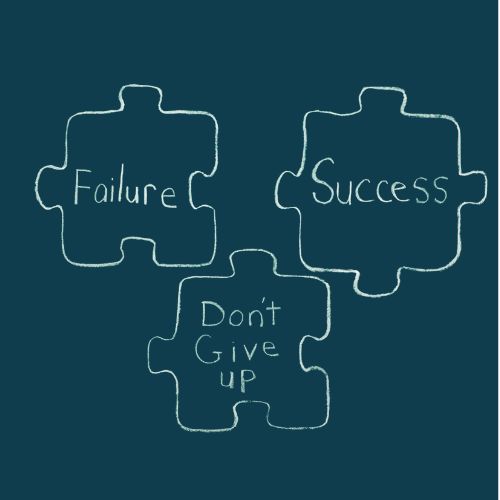
Building Healthy Habits for a Lifetime:
Building healthy habits is one of the most important investments you can make for your long-term well-being. Whether it’s eating well, staying active, or maintaining mental health, the choices you make today will shape the quality of your life in the future. But how do you turn good intentions into lasting habits? In this blog, we’ll dive into the steps to building sustainable health habits and why they’re crucial for a lifetime of wellness.
1. The Power of Habits: Why They Matter for Your Health
Habits are the foundation of your daily life. Whether good or bad, they shape the way you eat, move, sleep, and manage stress. Good habits are the key to achieving and maintaining long-term health, while bad habits can slowly degrade your well-being over time.
Think of habits as automatic behaviors—once they’re ingrained, they take little conscious effort. This is why focusing on building positive habits is essential. Over time, these habits will require less willpower and become second nature, helping you to lead a healthier life effortlessly.
2. Setting Clear, Attainable Goals: The First Step to Healthy Habits
Building healthy habits begins with setting clear, attainable goals. Vague objectives like “get healthier” or “lose weight” are hard to stick to. Instead, break your goals into specific, measurable, and realistic steps. For example, “eat two servings of vegetables with lunch” or “walk for 30 minutes every day” are concrete, actionable goals that are easier to follow.
When setting goals, it’s important to start small and gradually build. If your aim is to become more active, begin with short, manageable workouts and slowly increase intensity or duration over time. This makes the process more enjoyable and less overwhelming, allowing your body and mind to adapt to new habits naturally.
3. Consistency Over Perfection: Why Routine Matters More
One of the biggest challenges people face when trying to build healthy habits is the idea of perfection. It’s easy to get discouraged if you miss a workout or eat an unhealthy meal, but consistency is far more important than perfection.
Think of your health journey as a long-term investment. One misstep won’t undo all your progress, so don’t let a slip-up become a roadblock. Focus on getting back on track quickly. The more consistent you are, the stronger your habits will become, and the less likely you’ll be to fall off course in the future.
4. Eating for Life: Developing Sustainable Nutrition Habits
When it comes to building healthy eating habits, balance and moderation are key. Crash diets or extreme restrictions may lead to short-term results, but they’re rarely sustainable. Instead, aim to create a balanced diet filled with whole foods—fruits, vegetables, lean proteins, and whole grains—that you can enjoy for the rest of your life.
A helpful strategy is to focus on adding healthy foods rather than depriving yourself. For example, make an effort to incorporate more fruits and vegetables into your meals rather than cutting out entire food groups. This approach feels less restrictive and is easier to maintain in the long run.
5. Staying Active: Turning Exercise Into a Habit You Love
Regular physical activity is a cornerstone of lifelong health, but many people struggle to make it a habit. The key to sticking with exercise is finding activities you genuinely enjoy. Whether it’s walking, swimming, dancing, or playing a sport, exercise should feel fun and fulfilling, not like a chore.
Incorporating variety into your fitness routine can also help you stay motivated. Mix up your workouts with strength training, cardio, and flexibility exercises. This not only keeps things interesting but also ensures that you’re working different muscle groups and improving various aspects of your fitness.
6. Prioritizing Mental Health: Building Resilience Through Habits
Good mental health is just as important as physical health. Developing habits that support your mental well-being can reduce stress, boost mood, and improve overall life satisfaction. Start by practicing mindfulness, meditation, or gratitude journaling to help manage daily stress and keep your mind focused on positive experiences.
Additionally, maintaining strong social connections is vital for mental health. Make time to nurture your relationships with family and friends. Engaging in meaningful conversations, spending time with loved ones, and sharing your thoughts and feelings can strengthen emotional resilience and combat loneliness.
7. The Role of Sleep: Making Rest a Non-Negotiable Habit
Sleep is often overlooked, but it’s a crucial aspect of building healthy habits for a lifetime. Poor sleep can impact your mood, cognitive function, and physical health. Prioritizing good sleep hygiene—like maintaining a regular sleep schedule, limiting screen time before bed, and creating a relaxing bedtime routine—can make a significant difference in your overall well-being.
Aim for 7 to 9 hours of sleep per night. Consistent, quality rest allows your body to repair and rejuvenate, supporting everything from immune function to emotional balance. Remember, good sleep habits are a form of self-care that should never be compromised.
8. Breaking Bad Habits: The Key to Long-Term Success
While building healthy habits is essential, breaking bad ones is just as important. Bad habits, such as smoking, excessive alcohol consumption, or eating too much processed food, can undermine your health efforts.
Start by identifying the triggers that lead to these unhealthy behaviors. Then, find healthier alternatives to replace them. For example, if stress leads to overeating, consider healthier coping mechanisms such as deep breathing, going for a walk, or talking to a friend.
9. Tracking Progress: Staying Motivated Along the Way
Tracking your progress can help you stay motivated and accountable as you build new habits. Whether it’s logging workouts, tracking your meals, or keeping a journal of your mental health, recording your actions helps you visualize your growth and stay on course.
Celebrate small victories along the way. Each healthy habit you build is a step closer to lifelong wellness. Remember that the journey is ongoing, and each day offers an opportunity to make progress, no matter how small.






